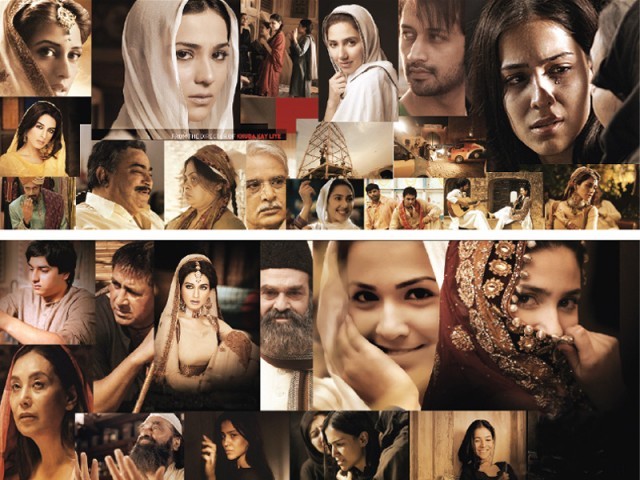Director: Shoaib Mansoor
Pakistan , in contrast to India
Asia ’s most revolutionary poet, Faiz Ahmed Faiz, in one of his most rousing poems, had written, ‘Bol ke lab azad hai tere..’ (Speak that thy lips are free). In this, and in the film, lies a message for us all, to speak out against oppression, be it in the political sphere or the personal. The current anti-corruption movement under Anna Hazare has shown the power of this ‘Bol’. When many in chorus scream, “I’m mad as hell and I’m not gonna take it anymore,” things change. Are you mad enough yet? If not, watch Bol, and you will be.
This review has been written for the wire service, Indo-Asian News Service (IANS).
Actors: Humaima Malick, Manzar Sehbai, Atif Aslam
Rating 4 out of 5
A woman sentenced to death, recounts her story of growing up in the shadow of an oppressive father who denies his girls their fundamental rights.
At the face of it, the film seems apolitical. However, one of the feminist movement’s clarion reasoning for action against oppression has been that the personal is political. And it is this politics in the personal story of this family, that writer-director Shoaib Mansoor of ‘Khuda Ke Liye’ handles with élan.
Shoaib Mansoor manages a very difficult task of taking up many issues without losing focus on any. You thus have issues of women’s emancipation, transsexualism, right to education and religiosity etc. handled with care enough for the audience to feel for each. The layers in the script itself make it a worthwhile watch. And that the film opens up gradually like an engaging mystery, keeps the viewers engrossed.
To carry so much loads on its shoulders the film needed some superlative performances. It has this in Humaima Malick who portrays the angst of a girl who itches to do the right thing and Manzar Sehbai who is stellar in his performance of a pigheadedness, hypocritical man.
The songs are catchy, especially ‘Kaho’ - the least one can expect from a Pakistani film considering their strong musical scene. The only problem however, is its melodrama that sometimes does get overbearing. But it is a small flaw, amidst its many skills.
At first look it is easy to denounce it as a statement against the oppression of women under Islam. That is indeed true, considering that women’s emancipation has yet failed to touch Muslims to a significant extent. Yet, to call the film just that would be an insult to its intelligence. For what it does in the chauvinist, hypocritical and obnoxiously religious character of the father, is create a template for closed-minded men everywhere. His stubbornness and manhood, is a metaphor for ‘the’ manhood that causes war and destruction everywhere.
Replace the Muslim Hakim, with a staunch Hindu man, and set the film in India India , it is often worse with literally hundreds of thousands of women being killed before birth or during it annually in India India

Satyen,
ReplyDeleteYour review has whetted my Sine-appetite, which is usually very anemic, to create much needed tension to see it. Thanks.
Sadanand
I read few words from ur blog, before i made it to watch in theater, anticipating it to be better one as u have given it 4-stars. It was nice. After coming back, i read the full review. Review was really impressive. Thanks.
ReplyDelete